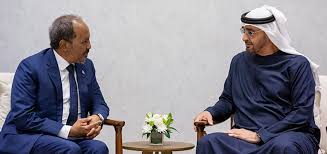### Report: **Qadar and the Somali Understanding – A Unique Perspective**
—
#### **Introduction**
The concept of *Qadar* (Divine Decree) holds a central place in Islamic theology. It refers to the belief that all events, both good and bad, occur according to the will of Allah (God). In Somalia, where Islam is deeply embedded in culture and daily life, the understanding of Qadar has developed into a unique and culturally nuanced interpretation known as *”Heshiis Gaaray”* — the “Unique Measure” or “Special Destiny.”
This report explores how Somalis perceive *Qadar*, how it influences their worldview, and how it integrates with their cultural identity, resilience, and faith.*Somali Concept: Heshiis Gaaray (The Unique Measure)**
In Somali society, the idea of *Qadar* is often expressed through the phrase **“Heshiis Baari”** (The Measure of God), or more specifically, **“Heshiis Gaaray”**, which means “a special measure” or “unique destiny.” This reflects a deeply personal and individualized view of divine decree.
##### **Key Characteristics of the Somali View of Qadar:**
1. **Personalized Destiny**:
Somalis often believe that each person has a unique path assigned by Allah. This belief helps people accept hardships, such as illness, poverty, or loss, as part of their personal destiny.
2. **Resilience and Patience (Sabr)**:
The frequent use of phrases like **“Heshiiska Baari waa in la xumeeyo”** (“One must accept God’s measure”) shows how Somalis use this belief to cope with adversity and maintain inner strength.
3. **Faith in Divine Justice**:
While Somalis believe that everything happens by the will of Allah, they also emphasize accountability. People are responsible for their actions, even if their circumstances were decreed by God.
4. **Tawakkul (Trust in Allah)**:
Many Somalis combine belief in *Qadar* with active effort (*jujuma*) and trust in Allah. They work hard but ultimately believe outcomes are in Allah’s han
*Response to Tragedy**:
When faced with loss or hardship, many Somalis say:
**“Waxaa jiray heshiiska Baari”** – “It was God’s decree.”
– **Daily Life Integration**:
Decisions in life—marriage, migration, business—are often made with the mindset that what is meant for you will come to you.
**Balance Between Fate and Free Will**While the Somali understanding of *Qadar* leans heavily on fate, there is still recognition of human agency. Somalis generally believe that while the outcome is in Allah’s hands, effort (*jujuma*) is still required. This aligns with the Islamic concept of *Qadar Murajjal* (decree linked with human choice), as opposed to *Qadar Mutlaq* (absolute decree without choice).
For example:
> “Allah sheekay inaad noqoto cid war ama cid bar”—“Allah decided whether you’ll be a rich person or a poor one,”
> but it’s also believed that education, hard work, and prayer can influence your journey within that framework.**Role of Qadar in Somali Identity**
Belief in *Qadar* plays a vital role in shaping Somali identity, especially during times of national crisis such as war, drought, and displacement. It provides a spiritual framework for understanding suffering and maintaining hope.
– During the civil war, many families clung to the belief that survival or loss was part of their *heshiis gaaray*.
– Displaced communities often express their hope for return using religious language tied to destiny.
– **Misunderstandings and Challenges**
Despite its positive aspects, the belief in *Qadar* can sometimes lead to fatalism or resignation. Some may misuse the concept to justify inaction or injustice. However, scholars and community leaders often remind people that Islam encourages striving and responsibility, even within the context of divine decree.
*Conclusion**
The Somali understanding of *Qadar*, referred to as **Heshiis Gaaray**, is a powerful blend of faith, resilience, and cultural identity. It offers comfort in hardship, explains the unexplainable, and reinforces a deep trust in Allah’s wisdom. While rooted in Islamic doctrine, the Somali expression of *Qadar* is uniquely personal and practical, making it an essential part of everyday life and worldview.
—
**Recommendations**
1. **Education**: Promote a balanced understanding of *Qadar* that encourages action and responsibility alongside faith.
2. **Community Dialogue**: Use sermons, poetry, and storytelling to highlight the interplay between destiny and free will.
3. **Psychological Support**: Incorporate the belief in *Qadar* into counseling and mental health support for trauma survivors.

